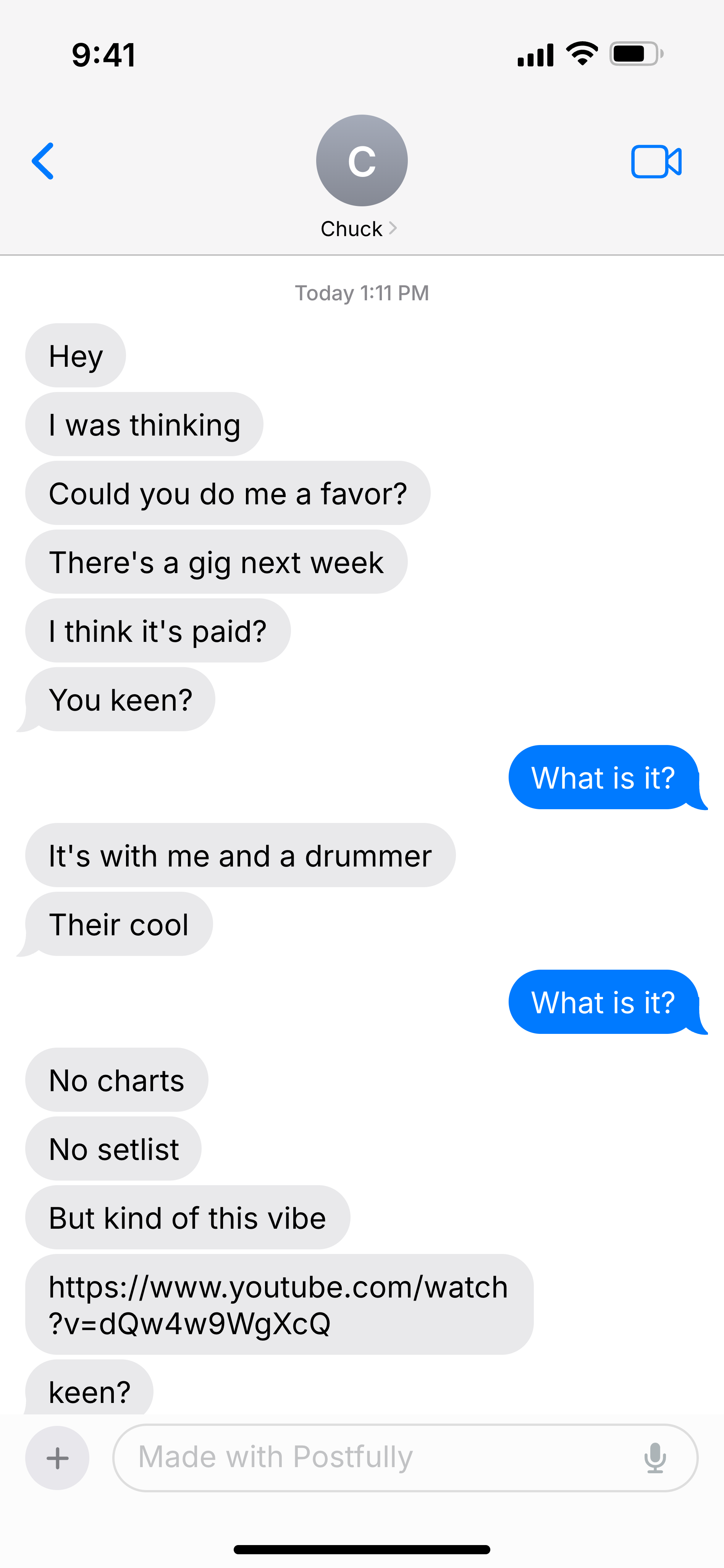How Musicians Should Communicate for Gigs (and Save Everyone’s Sanity)
The worst message you can receive as a busy musician is:
“Are you free on [insert date]?”
That question has stung me with too many low-paid, low-fun gigs. Or even worse—during a gig, your phone buzzes with so many notifications it sounds like a Temu metronome.
We can do better. As a profession, we musicians need to level up our communication game so we can skip the admin headaches and get to the fun stuff: making music.
Over years of gigging, I’ve refined a simple process that keeps my blood pressure down and my enthusiasm up. The two tools I rely on are:
Email (for the lead-up to the gig)
WhatsApp (for last-minute coordination)
Here’s how I use them.
Step 1: The Initial Email
A good email sets the tone and clears up questions before they happen. Here’s my template:
Subject: Gig Title – Gig Date
Body:
Thanks for being on board with this gig! Here are the details — let me know if you have any questions.
Personnel:
Gig Title:
Location: [Google Maps link]
Time: Day/Date, sets, and breaks
Attire:
Charts/Setlist: PDF attached (include artist names + full song titles)
Drive/Dropbox Link:
Pay: Amount, invoice details, and expected payment timeline
Accommodation: [Google Maps link]
Food:
Rehearsals: Info here, or link to Doodle/Pollendar availability poll
That’s everything — I’ll be in touch via WhatsApp closer to the gig!
Why email?
It’s searchable (way better than endless Messenger/DM threads).
It’s harder for the chat to get derailed by memes.
People can reply all or individually.
It doesn’t pressure people to reply instantly — which helps with work/life balance.
Step 2: The WhatsApp Group
Once the gig is close (a day or two before), I’ll create a WhatsApp group and paste in a concise info pack before the GIFs and memes take over.
What I include:
Timeline
Maps link
Chart folder link
WhatsApp makes it easy to pin essentials, send updates instantly, and call a bandmate directly if needed.
Why This Works
This system does more than save time:
It shows professionalism.
It reduces stress for everyone.
It lets musicians know that if you care about communication, you probably care even more about the music.
Because in the end, that’s what matters.

